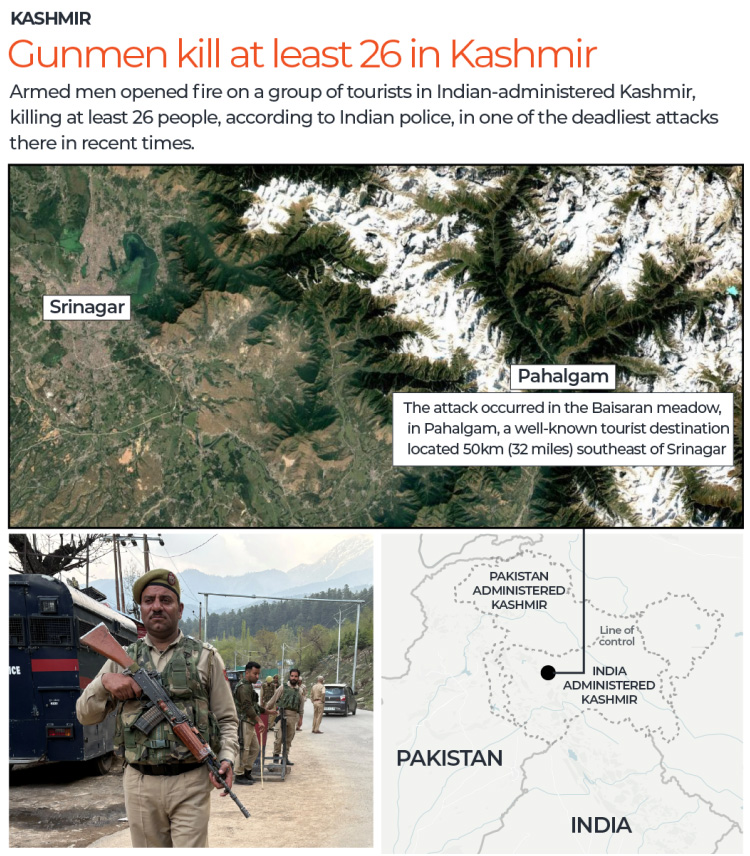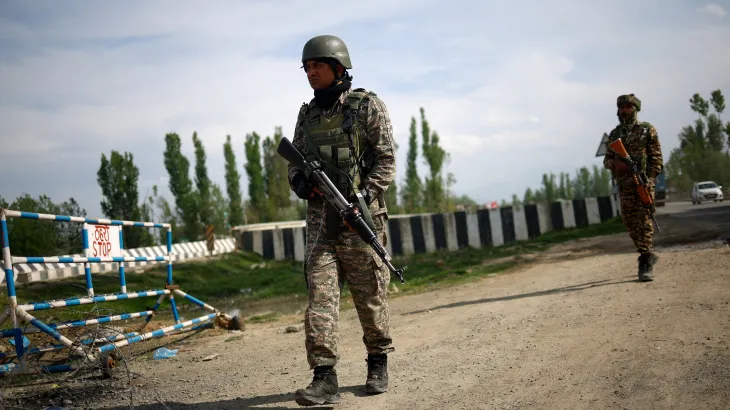Date: 24 April 2025 | By Margbooks Editorial Team
In a dramatic and unprecedented move, India has suspended the historic Indus Waters Treaty with Pakistan following a brutal terror attack in Pahalgam, Jammu and Kashmir, on April 23, 2025. The assault, which claimed 26 innocent lives—mostly tourists—has shaken the nation to its core and drawn strong diplomatic, strategic, and emotional reactions.
As reported by various sources and confirmed by official statements, the decision is seen not just as a response to the heinous act but also a stern message to those accused of harboring and supporting cross-border terrorism. Here’s a detailed look into what happened, what it means for India-Pakistan relations, and what the world is saying.

What Happened in Pahalgam?
The idyllic town of Pahalgam, known for its lush valleys and serene riverbanks, turned into a site of terror when armed militants opened fire on a bus carrying tourists near Lidder River.
- Victims: 25 Indian nationals and one tourist from Nepal.
- Injured: 17 others, some of them critically.
- Claim of Responsibility: A previously unknown group named Kashmir Resistance took responsibility.
- Suspected Links: Indian intelligence has traced the group’s ties to well-known Pakistan-based outfits like Lashkar-e-Taiba and Hizbul Mujahideen.
This attack not only took lives but also disturbed the delicate regional peace and led to national outrage.

The Indus Waters Treaty: A Brief Overview
Before diving into the suspension, let’s understand what the Indus Waters Treaty actually is.
Signed in 1960, this treaty between India and Pakistan—brokered by the World Bank—is a landmark water-sharing agreement that governs the use of the Indus River and its tributaries.
- Western Rivers (Indus, Jhelum, Chenab): Reserved primarily for Pakistan.
- Eastern Rivers (Ravi, Beas, Sutlej): Allocated to India.
- Purpose: Ensure fair distribution and prevent water-based conflicts between the two nations.
For over six decades, despite wars and border tensions, the treaty held strong. Until now.
India’s Strong Reaction: The Treaty Suspended
Following the Pahalgam attack, the Indian government acted swiftly and decisively.
Measures Announced:
- Suspension of the Indus Waters Treaty: India will halt cooperation under the treaty until Pakistan demonstrates credible action against terror groups operating from its soil.
- Diplomatic Downgrade: Pakistani defence officials stationed in New Delhi have been expelled; Indian defence attachés are being recalled from Islamabad.
- Visa Cancellations: Visas issued to Pakistani citizens under the SAARC Visa Exemption Scheme have been cancelled.
- Border Control: The Attari-Wagah border checkpost has been shut temporarily.
This move has sparked debates across diplomatic and legal circles, with many asking: Can the treaty be unilaterally suspended?
Can India Legally Suspend the Indus Waters Treaty?
Here’s where it gets tricky. As per international norms and the World Bank’s mandate, the Indus Waters Treaty isn’t designed for unilateral withdrawal. However, India argues that extraordinary situations, like state-sponsored terrorism, call for extraordinary responses.
Experts have pointed out:
- The treaty lacks a formal exit clause.
- Any changes ideally require bilateral consent.
- But India insists that national security must take precedence over old agreements.
Whether this step holds in international courts remains to be seen. But politically, it has already made waves.
Reactions From Pakistan and the Global Community
Unsurprisingly, Pakistan has strongly objected to the suspension, labelling it as an act of “water aggression.” Officials in Islamabad have denied any involvement in the Pahalgam incident and warned of “consequences” if India escalates further.
Global Response:
- United States: Expressed solidarity with India, condemned the attack.
- United Kingdom: Prime Minister Sir Keir Starmer called the attack “a cowardly act of terror.”
- United Nations: Urged both nations to exercise restraint and return to dialogue.
What This Means for Indo-Pak Relations
This isn’t just about water anymore. The suspension of the Indus Waters Treaty reflects the lowest point in Indo-Pak ties in recent history.
Possible Outcomes:
- Heightened tensions along the border.
- Increased global scrutiny on South Asian diplomacy.
- Risk to future peace talks and trade agreements.
India’s stance seems to signal a shift from patience to assertiveness—echoing the sentiment on the streets post-Pahalgam.
In Conclusion:
tracking Indo-Pak relations for years, and this development feels truly historic. Whether this act serves as a deterrent to terrorism or triggers a larger crisis remains to be seen. But one thing is clear—India is no longer willing to separate diplomacy from security.
As the nation mourns those lost in Pahalgam, the message is loud and clear: Enough is enough.
Interestingly, even Indian businesses are adapting to the changing socio-political landscape. Software companies like Margbooks, which offer smart solutions for Pharma Software, billing Software, accounting Software, and inventory management, are seeing a spike in demand as businesses prepare for potential supply disruptions and financial recalibrations.
Stay tuned to our blog for more updates on India’s evolving geopolitical strategies, business trends, and tech innovations like Margbooks that are helping companies navigate turbulent times.
As the nation mourns those lost in Pahalgam, the message is loud and clear: Enough is enough.

